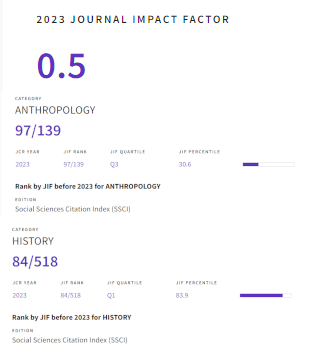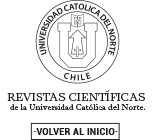La tierra emparentada: Acerca de los muyu o "suertes" (sistema de barbecho sectorial) en Marcapata, Perú
Abstract
Se describe y analiza el sistema de barbecho sectorial de una parte del ayllu Marcapata Collana (depto. de Cusco). Considerando otros estudios de caso sobre el mismo sistema en Perú y Bolivia, se describen las actividades agrícola-pastoriles en las que están comprometidas las familias marcapateñas y los vínculos genealógicos existentes entre ellas. Nuestro propósito es determinar en qué sentido y hasta qué punto un fenómeno económico y productivo puede ser interpretado desde la perspectiva de las relaciones de parentesco existentes entre las familias comprometidas en él, ponderando su alcance comparativo para comprender otros procesos similares en los Andes Centrales.
Palabras clave : barbecho sectorial; Marcapata; Perú; Andes Centrales; ayllu; parentesco.
Abstract
This paper describes and analyzes the sectoral fallowing system of a sector of the Marcapata Collana ayllu (department of Cusco) from the perspective offered by other case of studies about the same system from both Peru and Bolivia, the rest of the agro-pastoral activities in which the Marcapatenian families are engaged, and the genealogical links existing among them. The aim of this work, aside from dealing with the specificities of the Marcapatenian case, is to establish in which sense and how far an economic or productive phenomenon could be understood from the point of view of the kinship relationships existing among the families engaged in it. Also consider its comparative scope in order to understand other similar case of studies in the Central Andes.
Palabras clave : sectoral fallowing; Marcapata; Peru; Central Andes; ayllu; kinship.
Downloads
Downloads
Published
Issue
Section
License

All works published in Revista Estudios Atacameños (ISSN on line:0718-1043) Revista Estudios Atacameños Creative Commons International 4.0 attribution (CC BY 4.0) licence.
Authors remain the owners of their work and may republish their articles elsewhere without having to request permission, as long as they indicate that the work was originally published in Revista Estudios Atacameños (ISSN on liine:0718-1043).












